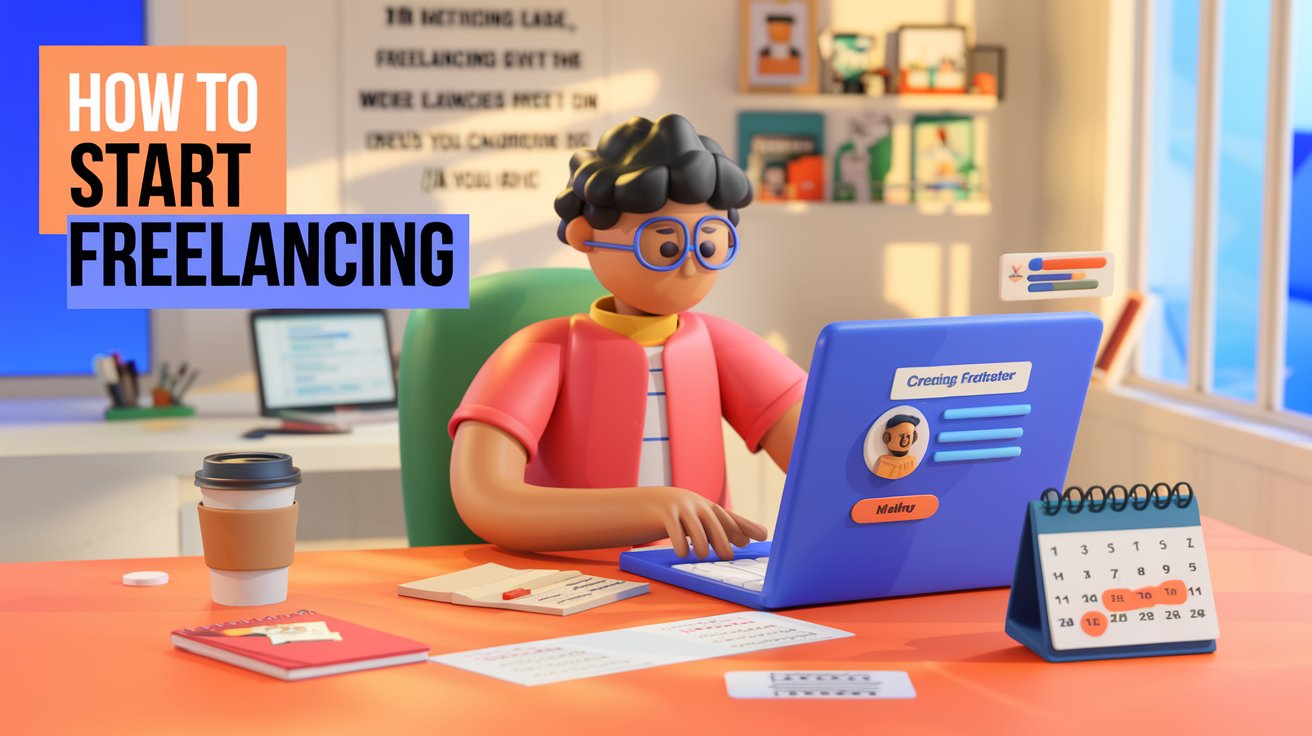Internet changes the way people work, and freelancing has become one of the most demanded careers lately. With the right online skills, the dream of creating a successful freelance career is not longer an unattainable goal, but rather a reality. However, it takes place in a strategic plan, constant learning, and demand. Get ready to take control of your career and start earning through freelancing. Here’s how you can get started.
1. Identify and Hone Your Online Skills
The base of a successful freelance career would be your skill set. You first need to identify what online skills you have which are in demand. Today, many skills are high in demand in the freelance market such as:
- Writing: Developing content, copy writing, and editing for blogs, websites, and social media.
- Graphic Design: Designing logos, social media posts, among other branding materials;
- Web Development: Building and maintaining a business’s website;
- Digital Marketing: SEO, social media management, email marketing, ad campaigns.
- Video Editing: Video editing for YouTube, commercial, and online courses.
- Virtual Assistance: Administrative support, customer service, and scheduling for business.
Online courses will help if you are still in a dilemma on what to specialize in or want to polish your skills. Many courses are available for you on sites such as Udemy, Skillshare, and Coursera to help build or perfect your skills. The more you learn, the more competitive you become in the freelance market, therefore increasing your chances of getting more rewarding jobs.
2. Build a Standout Portfolio
One good way to start attracting clients is by showing your ability through a professional portfolio. Even if you are brand new to freelancing, you can still make a portfolio by working on sample projects or doing the services for free for friends, family, and even non-profit organizations. Your portfolio is basically your sales pitch-it shows potential clients what you’re capable of and why they should hire you.
- Writers: Include a range of writing samples, such as blog posts, articles, or social media content.
- Designers: Use platforms like Behance or Dribbble to present your design work.
- Developers: Showcase your coding projects on GitHub or create sample websites.
- Marketers: Provide case studies of past campaigns, social media strategies, or email newsletters.
3. Freelance Platforms
Getting that first client is tough, but freelance platforms make it easy to get off the ground. Freelance platforms are basically marketplaces through which you can access your potential clients. This marketplace provides a range of gigs: one-time and small gigs to some long-term projects.
- Upwork: It is one of the largest freelance marketplaces, offering work in nearly every industry.
- Fiverr: Good for offering services that are specific at different price tags for new freelance professionals.
- Freelancer.com: A global marketplace with various categories including writing, designing, and IT.
- Toptal: It is a specialty platform that reaches only the best 3% freelancers mainly for tech and design specialists.
When getting started, not to worry about the low payings gigs. Key in building reputation and clients. The more experience with good reviews and project completion, then you can increase prices.
4. Set Competitive Rates and Goals
Among the biggest struggles that new freelancers face is finding out how to price their services. Start by researching average rates for your skill set and level of experience. You can start low as a beginner to attract clients, but don’t let yourself undervalue your work-too-long. Over time, you’ll be able to adjust your pricing according to your quality portfolio and how much demand has picked up for your services.
Give clear financial and professional goals. By how much would you like to earn each month? How many clients or projects would it take for you to meet this target? Once you set all these goals, tracking the progress shall aid you to stay motivated and focused.
5. Learn to Sell Yourself and Be a Good Networker
Freelancers must sell themselves. Apart from using platforms for freelance work, use social media, personal brands and networking; there is a need to have a professional website to showcase their portfolios and services along with the means to contact them. One should share their work and insights regularly on platforms like LinkedIn, Twitter, or Instagram.
Join communities for freelancers, like the Freelancers Union or Facebook groups, centered around your niche, and engage with them on the social network Reddit. Networking can yield referrals, collaborations, or kinds of opportunities that don’t always appear through a freelance platform.
6. Deliver Exceptional Client Service
First and foremost, in a successful freelance career, client satisfaction should take precedence. Communicate well and meet deadlines. Deliver work of the highest quality possible. Most freelancers win repeated business and often get referrals from clients who find it convenient and rewarding to deal with you. First and foremost, excellent service will distinguish you from competitors and make clients come back for more.



